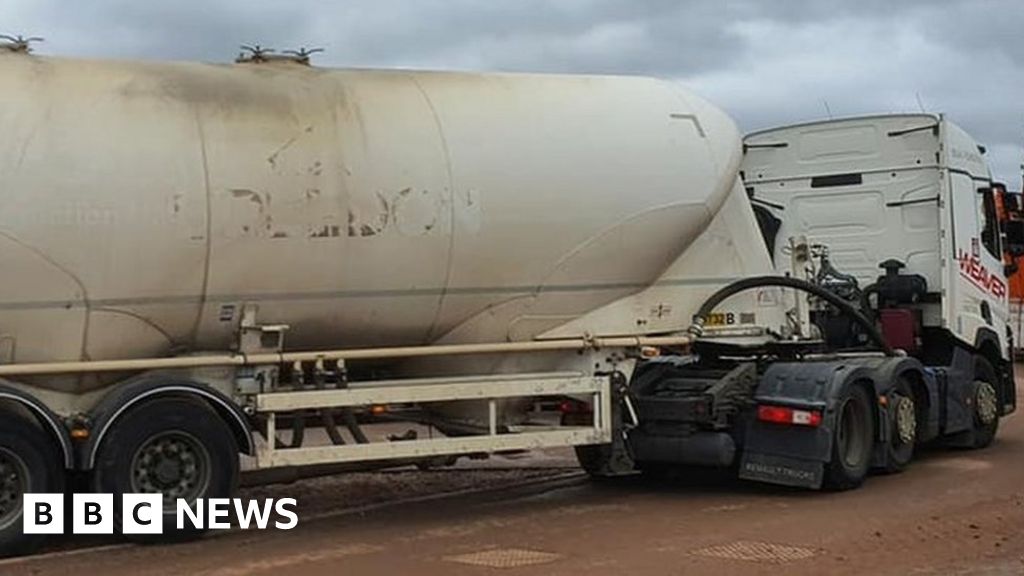
Europe is battling a record-breaking surge in energy prices that threatens to derail the post-pandemic economic recovery, strain household incomes and even tarnish the nascent green transition.
A series of market, geographic and political factors have coalesced into a perfect storm that shows no signs of abetting as the continent enters the autumn season, temperatures gradually decrease and heating becomes indispensable.
Analysts are already warning the crisis, which is exacerbated by a mixture of temporary and structural problems, will be prolonged and the worst may yet to come.
Prices of natural gas are skyrocketing: at the Dutch
Title Transfer Facility, Europe's leading benchmark, prices have risen from €16 megawatt per hour in early January to €75 by mid-September, a hike of more than 360% in less than one year.
Although the European Union is gradually cutting down on its long-time dependency on fossil fuels – renewables became the bloc's main source of electricity
for the first time in 2020 – the shift has not been fast and widespread enough to contain the fallout from the crunch.
Together, natural gas and coal still supply more than 35% of the EU's total production, with gas representing over a fifth. The energy mix is vastly different across the bloc: fossil fuels have a marginal share in Sweden, France and Luxembourg, but take up more than 60% of total production in the Netherlands, Poland, Malta and Cyprus.
As coal, the most polluting fuel, is progressively phased out, many countries resort to natural gas as a transitional resource to act as a bridge before green alternatives, like wind turbines and solar panels, are rolled out. Moreover, gas is also used for residential heating and cooking, making the price surge even more noticeable in the final expenses of consumers.
Citizens in countries like Spain, Italy, France and Poland are now facing all-time-high energy bills that add to the economic woes caused by the pandemic. The popular discontent has put governments on high alert, with ministers scrambling to come up with emergency measures, even if they're short-term and only partially effective to cushion the impact.
In Italy, Roberto Cingolani, minister for the ecological transitions, has already warned Italians to expect a 40% increase in their bills over the next months. France said it will send one-off €100 payments to over 5.8 million low-income households. In Spain, the government has promised to bring prices down to 2018 levels. Madrid also sent a letter to Brussels asking for EU-wide action. "We urgently need a European policy menu pre-designed to react immediately to dramatic price surges," the letter said.
But as the crisis spills over the bloc and citizens express increasing concern, it's unclear how much power the European Union can exert to rein in the excesses of a liberalised energy market whose primary source comes from outside its own borders.
Why are Europe's energy prices soaring?
"This is about a surge in demand for energy as we come out of the restrictions imposed by the pandemic, combined with a reduced supply of gas on the global market," Tim Gore, head of the Low Carbon and Circular Economy programme at the Institute for European Environmental Policy (IEEP), told Euronews
"Then there are other factors exacerbating the problem, particularly in Europe. We have succeeded in getting coal off the grid, and that happens to coincide with a period recently where wind power has been lower because of the weather."
Trouble began brewing in the winter when colder-than-expected temperatures led to a higher-than-usual power demand to warm up buildings. This, in turn, induced a marked decrease in gas reserves, which reached a worrisome 30% by March. In spring, as the vaccination campaign gained traction around the continent, business activity began to intensify rapidly, with offices, restaurants and other venues reopening their doors and consumers pouring in, eager to spend their lockdown savings.
The economic recovery prompted a new wave of energy demand, which further increased during the summer when sweltering temperatures pushed people to use air conditioning and cooling systems. East Asian countries then joined Europe in the quest for energy to kick start their COVID-ravaged economies. However, the growing demand was not met with a growing offer.
"The pipeline supplies we get from countries like Russia, Norway and Algeria, despite this higher price, have not actually supplied more gas to Europe. They have kept their suppliers quite at the regular volumes. And that's a bit strange because normally if the price goes up and you're a supplier and you have spare capacity, you could use this opportunity to sell more gas at a higher price. That hasn't happened yet," Dennis Hesseling, head of infrastructure, retail and gas at the Agency for the Cooperation of Energy Regulators (ACER), told Euronews.
With companies from all around the world trying to get their hands on energy sources, prices began steadily rising. By August, they were breaking records. Traditionally, gas is cheaper during summertime and companies seize the moment to store it in large volumes to be well prepared before winter arrives. But the ongoing price crisis disrupted the custom and current reserves are historically low for this time of the year, an ominous sign for the coming months.
"If we get a particularly cold winter again this year, that's going to be a tough period and prices will continue to rise as a result," added Gore.
"Governments should be preparing now and putting in place the measures to respond and help households through the period. There is still time."
Nord Stream 2 gas pipeline routeCredit: Euronews
Is there a link between Europe's energy crisis and the new Russia-Germany gas pipeline?
The surprising lack of new supplies from Russia, which is the EU's
leading gas exporter, is raising fears that Moscow wants to capitalise on the crisis to make the case in favour of the controversial Nord Stream 2 pipeline. The 1,230-kilometre conduct running under the Baltic Sea and directly linking Russia and Germany
is now complete but hasn't begun operations due to bureaucratic hurdles. The project
has been heavily criticised inside and outside the EU for perpetuating the bloc's dependence on fossil fuels and extending President Putin's geopolitical influence.
Gazprom, the pipeline's main backer, and the Russian government have denied any involvement in the energy crunch but insist the pipeline should be put to work "as soon as possible". Critics, however, think the timing of the crisis seems too favourable for the Kremlin's agenda.
"Having carried the authorisation for the Nord Stream 2 gas pipeline, a bilateral Russian-German vision which is not part of a shared vision of Europe and doesn't respect the Ukrainian territory, has weakened Europe's position as a guarantor of the common good in favour of mercantilism of some strong countries like Germany," said Carlo Andrea Bollino, a professor at the University of Perugia.
"This can be attributed to Brussels. The EU didn't have the courage to say no to Germany."
A group of more than 40 Members of the European Parliament have sent a letter to the European Commission asking "to urgently open an investigation into possible deliberate market manipulation by Gazprom and potential violation of EU competition rules".
The suspicions about the Kremlin's deliberate interference have reached Washington, one of the most vocal critics against Nord Stream 2.
"We want to all have our eye on the issue of any manipulation of gas prices by hoarding or the failure to produce adequate supply," US Energy Secretary Jennifer Granholm
said during a visit to Warsaw.




